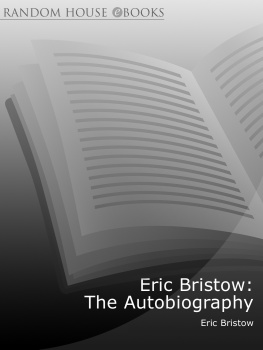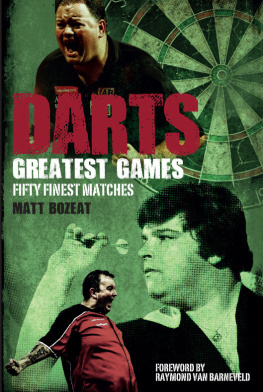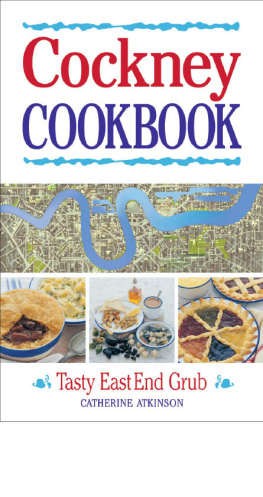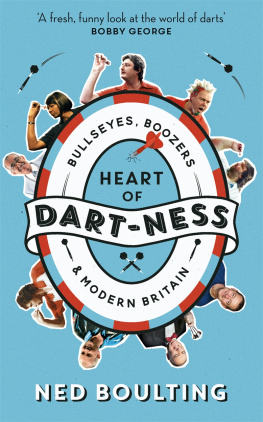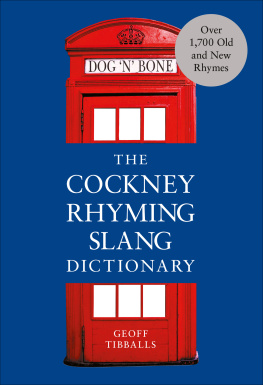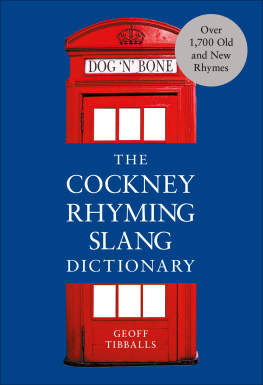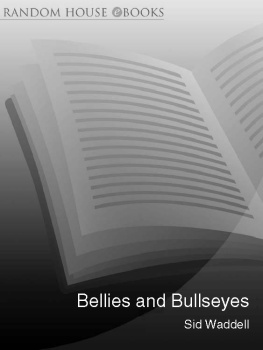Bristow - The Autobiography The Crafty Cockney
Here you can read online Bristow - The Autobiography The Crafty Cockney full text of the book (entire story) in english for free. Download pdf and epub, get meaning, cover and reviews about this ebook. City: London;Great Britain, year: 2010, publisher: Random House;Arrow, genre: Detective and thriller. Description of the work, (preface) as well as reviews are available. Best literature library LitArk.com created for fans of good reading and offers a wide selection of genres:
Romance novel
Science fiction
Adventure
Detective
Science
History
Home and family
Prose
Art
Politics
Computer
Non-fiction
Religion
Business
Children
Humor
Choose a favorite category and find really read worthwhile books. Enjoy immersion in the world of imagination, feel the emotions of the characters or learn something new for yourself, make an fascinating discovery.
- Book:The Autobiography The Crafty Cockney
- Author:
- Publisher:Random House;Arrow
- Genre:
- Year:2010
- City:London;Great Britain
- Rating:3 / 5
- Favourites:Add to favourites
- Your mark:
- 60
- 1
- 2
- 3
- 4
- 5
The Autobiography The Crafty Cockney: summary, description and annotation
We offer to read an annotation, description, summary or preface (depends on what the author of the book "The Autobiography The Crafty Cockney" wrote himself). If you haven't found the necessary information about the book — write in the comments, we will try to find it.
Bristow: author's other books
Who wrote The Autobiography The Crafty Cockney? Find out the surname, the name of the author of the book and a list of all author's works by series.
The Autobiography The Crafty Cockney — read online for free the complete book (whole text) full work
Below is the text of the book, divided by pages. System saving the place of the last page read, allows you to conveniently read the book "The Autobiography The Crafty Cockney" online for free, without having to search again every time where you left off. Put a bookmark, and you can go to the page where you finished reading at any time.
Font size:
Interval:
Bookmark:
Contents
About the Book
ERIC BRISTOW MBE is considered to be the greatest darts player of all time. He was an unmistakable figure on the oche during his 1980s heyday, and became renowned not just for the number of world titles he won but for his arrogance on stage and off it.
In this candid account Bristow reveals how darts proved a salvation from his early life as a cat burglar, shoplifter and thug, introducing him to a new world of beer, babes and undreamed of success. And in his rapid rise to the top he gives fascinating insights into the characters that pioneered darts in those early days and how, when his own career began to slide at the end of the decade, he trained his protg Phil The Power Taylor, turning him into the most successful player darts has ever known.
Bristow holds nothing back as he reveals his battle with dartitis, a psychological condition which left him unable to let go of the dart and almost destroyed his career; his relationship with girlfriend and former womens world darts champion Maureen Flowers; and his occasional all-to-public falls from grace.
Bristows life story is a thrill-a-minute ride through the raucous world of darts and how it has helped to shape and drive his life over the past forty years.
About the Author
ERIC BRISTOW MBE was the most successful darts player of the 1980s and single-handedly turned the game into a worldwide spectator sport. He won five World Championships between 1980 and 1986, five World Masters, and has won almost every tournament in the game at least once. Between 1980 and 1987 he reigned as number one in the world and in 1989 was given an MBE for his services to the sport. He currently works as a pundit and commentator for Sky Sports and tours Britain with other famous darts names such as John Lowe as part of the Legends Tour.
PAUL CARTER began his career in journalism in 1990 at the Oldham Advertiser. He has worked as a sports reporter for the Sunday Times, feature writer for the Sun and also at Sky News. In 1996 Paul joined Sport Newspapers and was made editor of the Sunday Sport in 2001. He quit in September 2007 to pursue a career as a writer. Paul has had one other book published in 2006, Behind Palace Doors, the story of the Queen Mother as told through the eyes of her equerry Major Colin Burgess.

Dedication
For all my family, friends and supporters and especially for my former drivers Trevor Band and Phil Dacasto who have sadly passed away, and Bass entertainments manager Malcolm Powell who supported me during my lowest moment in darts.
Acknowledgements
Writing this book wouldnt have been possible without the goodwill, vision and encouragement of so many people who have helped me in my career throughout the years. Id particularly like to thank all those involved with the BDO especially Ollie Croft and his late wife Lorna who put a great structure in place for darts to build upon; all the officials and organisers involved in the PDC, especially John Raby, without whom there wouldve been no PDC; everyone at Sky Sports for making darts bigger than it has ever been in its history and supporting it through its troubled times during the breakaway from the BDOs and Dick Allix who managed me for over two decades. Id also like to thank everyone at Random House for their help in making this book happen, especially editor Timothy Andrews; Jonathan Harris of literary agents Luxton Harris; and finally Paul Carter for doing such a great job in writing the book. I also send my appreciation to all those who have shown their help, support and patience and who have backed me during my career in darts with all the ups and downs that went with it and there were many of those.
ONE
Streetwise
YOU PLAY LIKE a poof!
These were the words my dad George said to me when he first watched me play darts. I was eleven years old and hed just bought me a board for my birthday. I was playing in my bedroom.
I cant take you down the pub if you play like that, he said.
Id never played darts before, but three weeks later I was getting regular three-dart scores of a hundred plus. The trouble was I had a unique style of throwing that in my dads eyes looked suspect. It involved standing to the side and holding the dart lower down the barrel so my little finger rested on the tip of it. This hindered my throwing action. To overcome this I raised my little finger in the air so there was no contact with the point.
You look like a little posh boy holding a china tea-cup, he said.
Give it a rest, Dad, I said to him. This is the way I play, and this is the way Ill always play.
He didnt like it, but it was a style that gave me five World Championships, five World Masters, two News of the World titles, four British Opens, three Butlins Grand Masters and numerous Open wins in Sweden, Denmark and North America, plus a host of other titles and pretty soon everybody was copying my throwing style. As soon as I got good there were thousands of other players in pubs and clubs up and down the country all playing with raised pinkies. They thought they could be great darts players just by lifting up their little finger. What a bunch of wallies!
I was born in Ward 6, Hackney Hospital, East London, at 5.50 a.m. on 25 April 1957, and weighed a healthy, though not huge, six pounds. My mum Pamela was a telephonist in the City and Dad was a plasterer. Mum was the rock in our family, she was the one who pushed me and encouraged me, and she always stood up for me whenever I got into any trouble, which was quite often. My dad was a bit quieter. He had his routine: the occasional trip down the bookies, the pub on a Sunday afternoon, that sort of thing. We lived in Stoke Newington, where you learnt at an early age that life on the streets was tough. I know its a bit of a clich but in my case it was true. After the Second World War Stoke Newington, like many run-down areas, suffered at the hands of urban planners who tore down the slums and replaced them with housing estates. These quickly became a magnet for crime. I was lucky in that I lived in a big three-storey Victorian house. Itd be worth a fortune now because Stoke Newington, like most places in the East End, has been yuppified. However, it was slap bang in the middle of these new housing projects.
On the bottom floor of our house lived my nan, we lived on the middle floor and at the top was my Auntie Ethel. Nan smoked Kensington cigarettes all her life and when I was a kid I used to sneak into her living room and steal a few, like you do when youre young. Later on, when Id made it at darts and was on good money, I lived with the guilt of stealing her fags so Id use my winnings to buy her packets of two hundred, which Id take round to her house, together with a crate of Guinness. She drank Guinness every night.
In those early days one thing a young boy had to do, living in Londons East End, was learn to survive. Stoke Newington was tough and you had to be streetwise to get on. When I was a teenager I got in with a gang. My crew was known as the Oxton Boys. We were petty thieves getting up to mischief, but we were mere foot soldiers compared to the bigger gangs, of which the main one at the time was the Richardsons. They were the governors on our patch and were led by Charlie Richardson. You didnt mess with them: you avoided them at all costs and if you crossed them you left the country: either that or youd end up dead. They were also known as the Torture Gang. Their speciality was pinning victims to the floor with six-inch nails and removing their toes with bolt cutters. Other tortures included whippings, cigarette burning, teeth being pulled out with pliers, and electrocution into unconsciousness. The electrocutions were inflicted by an old Army field telephone which acted as a generator. The victims had the terminals attached to their nipples and bollocks and were then forced into a bath of cold water to enhance the electrical charge. Afterwards, if they were too badly injured, theyd be sent to a doctor whod been struck off the Medical Register. If you saw a member of the Richardson Gang you put your head down, kept yourself to yourself and behaved. It was as simple as that. They used a pub just round the corner from where we hung out.
Next pageFont size:
Interval:
Bookmark:
Similar books «The Autobiography The Crafty Cockney»
Look at similar books to The Autobiography The Crafty Cockney. We have selected literature similar in name and meaning in the hope of providing readers with more options to find new, interesting, not yet read works.
Discussion, reviews of the book The Autobiography The Crafty Cockney and just readers' own opinions. Leave your comments, write what you think about the work, its meaning or the main characters. Specify what exactly you liked and what you didn't like, and why you think so.

